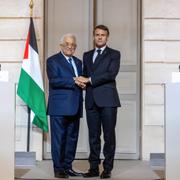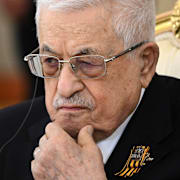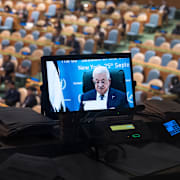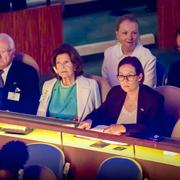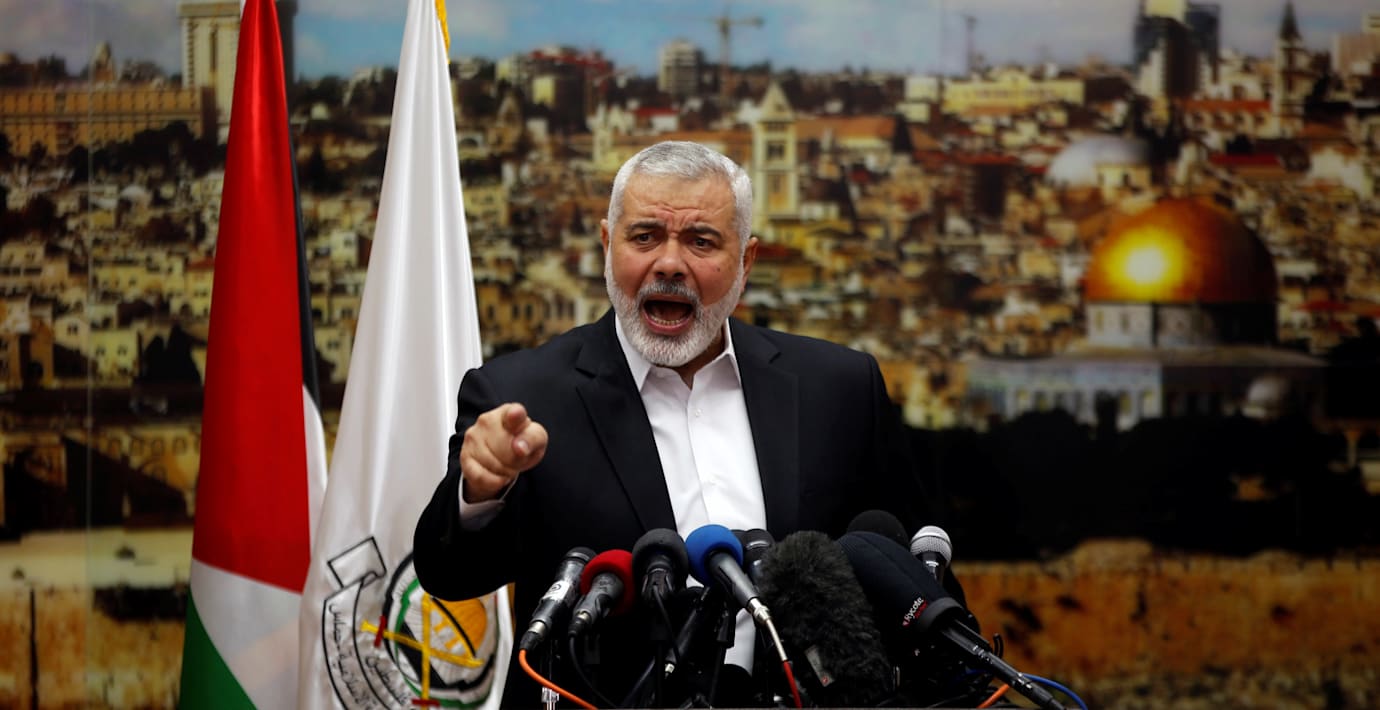
Hamas ledare vill se nytt uppror mot Israel
Ledaren för den terrorklassade palestinska organisationen Hamas uppmanar palestinier att inleda en ny intifada, rapporterar AFP.
Uttalandet, med uppmaning till att genomföra ett uppror mot Israel, kommer dagen efter att USA meddelat att man erkänner Jerusalem som landets huvudstad.
– Jerusalem kidnappas och slits ifrån oss, säger Hamas ledare Ismail Haniya i ett tv-sänt tal från Gaza, rapporterar Blomberg.
bakgrund
Intifada
Wikipedia (en)
Intifada (انتفاضة intifāḍah) is an Arabic word literally meaning, as a noun, "tremor", "shivering", "shuddering". It is derived from an Arabic term nafada meaning "to shake", "shake off", "get rid of", as a dog might shrug off water, or as one might shake off sleep, or dirt from one's sandals, and is a key concept in contemporary Arabic usage referring to a legitimate uprising against oppression. It is often rendered into English as "uprising", "resistance", or "rebellion".
The concept intifada was first utilized in modern times in 1952 within the Kingdom of Iraq, when socialist and communist parties took to the streets to protest the Hashemite monarchy, with inspiration of the 1952 Egyptian Revolution. In the Palestinian context, with which it is particularly associated, the word refers to attempts to "shake off" the Israeli occupation of the West Bank and Gaza Strip in the First and Second Intifadas, where it was originally chosen to connote "aggressive nonviolent resistance", a meaning it bore among Palestinian students in struggles in the 1980s and which they adopted as less confrontational than terms in earlier militant rhetoric since it bore no nuance of violence.
bakgrund
Hamas
Wikipedia (en)
Hamas (Arabic: حماس Ḥamās, an acronym of حركة المقاومة الاسلامية Ḥarakat al-Muqāwamah al-ʾIslāmiyyah Islamic Resistance Movement) is a Palestinian Sunni-Islamic fundamentalist organization. It has a social service wing, Dawah, and a military wing, the Izz ad-Din al-Qassam Brigades. It has been the de facto governing authority of the Gaza Strip since its takeover of that area in 2007. During this period it fought several wars with Israel. It is regarded, either in whole or in part, as a terrorist organization by several countries and international organizations, most notably by Israel, the United States and the European Union.
Hamas was founded in 1987, soon after the First Intifada broke out, as an offshoot of the Egyptian Muslim Brotherhood, which in its Gaza branch had been non-confrontational towards Israel, refrained from resistance, and was hostile to the PLO. Co-founder Sheik Ahmed Yassin stated in 1987, and the Hamas Charter affirmed in 1988, that Hamas was founded to liberate Palestine, including modern-day Israel, from Israeli occupation and to establish an Islamic state in the area that is now Israel, the West Bank and the Gaza Strip. The group has stated that it may accept a 10-year truce if Israel withdraws to the 1967 borders and allows Palestinian refugees from 1948, including their descendants, to return to what is now Israel, although clarifying that this does not mean recognition of Israel or the end of the conflict. Hamas's military wing objected to the truce offer. Analysts have said that it seems clear that Hamas knows that many of its conditions for the truce could never be met.
The military wing of Hamas has launched attacks against Israeli civilians and soldiers, often describing them as retaliatory, in particular for assassinations of the upper echelon of their leadership. Tactics have included suicide bombings and, since 2001, rocket attacks. Hamas's rocket arsenal, though mainly consisting of short-range homemade Qassam rockets, also includes long-range weapons that have reached major Israeli cities including Tel Aviv and Haifa. The attacks on civilians have been condemned as war crimes and crimes against humanity by human rights groups such as Human Rights Watch. A 2017 Palestinian Center for Public Opinion poll in the Palestinian territories revealed that Hamas violence and rhetoric against Israelis are unpopular and that a majority of Palestinians would rather Hamas "accept a permanent two-state solution based on the 1967 borders."
In the January 2006 Palestinian parliamentary elections, Hamas won a plurality in the Palestinian Parliament, defeating the PLO-affiliated Fatah party. Following the elections, the Quartet (the United States, Russia, United Nations, and European Union) made future foreign assistance to the PA conditional upon the future government's commitment to non-violence, recognition of the state of Israel, and acceptance of previous agreements. Hamas rejected those changes, which led to the Quartet suspending its foreign assistance program and Israel imposing economic sanctions on the Hamas-led administration. In March 2007, a national unity government headed by Prime Minister Ismail Haniyeh of Hamas was briefly formed, but this failed to restart international financial assistance. Tensions over control of Palestinian security forces soon erupted in the 2007 Battle of Gaza, after which Hamas took control of Gaza, while its officials were ousted from government positions in the West Bank. Israel and Egypt then imposed an economic blockade of the Gaza Strip, on the grounds that Fatah forces were no longer providing security there. In 2011, Hamas and Fatah announced a reconciliation agreement that provides for creation of a joint caretaker Palestinian government. Progress stalled, until an April 2014 agreement to form a compromise unity government, with elections to be held in late 2014.
Omni är politiskt obundna och oberoende. Vi strävar efter att ge fler perspektiv på nyheterna. Har du frågor eller synpunkter kring vår rapportering? Kontakta redaktionen
